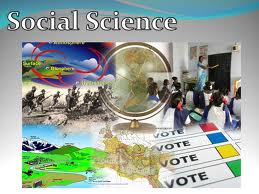Psychonarratology: from cognitive processes to readers’ narrative comprehension
Keywords:
Psychonarratology,Narrative,Cognitive process,Cognitive models,Comprehension,ReadersAbstract
Psychonarratology studies the cognitive processes of narrative comprehension in readers’ minds. There are thus close ties between psychonarratology and cognitive processes of mind while reading a narrative. This study aims to provide definitions and explanations for the two basic crucial concepts of ‘psychonarratology’ and ‘narrative’. First, it considers the role of readers in narrative comprehension and for this reader response theory and reception theory are elaborated on. Then, the cognitive processes which are active during narrative comprehension, are discussed. Three models of this cognitive processes are presented as well. ‘Narrative’, among other discourse genres, is the focus of this study. Because of its distinctive features, a narrative has its unique way of being understood. The processes of narrative comprehension will be considered and elaborated on in this study.
References
Albrecht, J.E., O’Brien, E.J., 1993. Updating a mental model: maintaining both local and global coherence. J. Exp. Psychol. Learn. Mem. Cogn., 19, 1061-70
Anderson, M., 2012. Reader Response Theories and Life Narratives (Master’s Thesis). Retrieved from: http://dtpr.lib.athabascau.ca/action/download.php?filename=mais/marylandersonproject.pdf.
Bernaerts, L., de Geest, D., Herman, L., Vervaeck, B. (Eds.)., 2013. Stories and Minds: Cognitive Approaches to Literary Narrative. Lincoln, Belgium: University of Nebraska Press.
Barr, M.L., Kamil, P., Mosenthal, P.D., Pearson (Eds.). Handbook of Reading Research. London: Longman.
Bleich, D., 1978. Subjective Criticism. Baltimore: Johns Hopkins UP.
Bordwell, D., 1993. Cognition and Comprehension: Viewing and Forgetting in Mildred Pierce. J. Dramat. Theory Criticism., 183-198.
Bortolussi, M., Dixon, P., 2003. Psychonarratology. USA: Cambridge University Press.
Bower, G.H., Morrow, D.G., 1990. Mental Models in Narrative Comprehension. Sci., New Series, Vol. 247, No. 4938, pp. 44-48.
Bruner, J., 1986. Actual minds, possible worlds. Cambridge, MA: Harvard University Press.
Cliffton Jr., C., Duffy, S.A., 2001. Sentence and Text Comprehension: Roles of Linguistic Structure. Annu. Rev. Psychol., 52, 167–196.
Collins, A., Brown, J.S., Larkin, K.M., 1980. Inferences in Text Understanding. In Spiro. R. J., Bruce, B. C., & Brewer, W. F. (Eds). Theoretical Issues in Reading Comprehension. Hilsdale, NJ: Erlbaum.
Emmott, C., 1997. Narrative Comprehension: a Discourse Perspective. Oxford: Oxford University Press.
Gernsbacher, M.A., Goldsmith, H.H., Robertson, R.R.W., 1992. Do readers mentally represent characters’ emotional states. Cognit. Emot., 6, 89-111.
Gerrig, R.J., 1993. Exper. Narrat. Worlds Psycholog. Activit. Read.
New Haven, CT: Yale University Press.
Glenberg, A.M., Meyer, M., Lindem, K., 1987. Mental Models Contribute to Forgrounding during Text Comprehension. J. Mem. Language., 26, 69-83.
Goldman, S., Graesser, A.C., van den Broek, P., 1999. (Eds). Narrative Comprehension, Causality, and Coherence. Mahwah, NJ: Erlbaum.
Graesser, A.C., Golding, J.M., Long, D.L., 1991. Narrative Representation and Comprehension. In R. Graesser, A. C., Hauft-Smith, K., Cohen, A. D., & Pyles, L. D., 1980. Advanced outlines, familiarity, and text genre on retention of prose. J. Exper. Educat., 48, 281–290.
Graesser, A.C., Olde, B., Klettke, B., 2002. How does mind construct and represent stories. Narrat. Impact. Soc. Cognit. Foundat. Green, M., Strange, J. and Brock, T. (Eds). Mahwah, NJ: Erlbaum.
Graesser, A.C., Ottati, V., 1996. Why stories? Some evidence, questions, and challenges. In Wyer, R. S. (Ed.). Knowledge and Memory: The Real Story. 121-132. Hillsdale, NJ: Erlbaum.
Graesser, A.C., Singer, M., Trabasso, T., 1994. Constructing inferences during narrative text comprehension. Psychol. Rev., 101. 371-95.
Gross, S., 1977. Cognitive Readings; or, the Disappearance of Literature in the Mind. Poetics Today., 18(2), 271-97.
Holland, N., 1975. 5 Readers Reading. New Haven: Yale UP.
Iser, W., 1974. The Implied Reader. Patterns of Communication in Prose Fiction from Bunyan to Beckett. Baltimore and London: The Johns Hopkins University Press.
Iser, W., 2000. Do I Write For an Audience. PMLA., 115, 3, 310-314.
Laszlo, J., 2008. The Science of Stories: An Introduction to Narrative Psychology. London: Routledge.
Johnson-Laird, P. N., 1983. Mental Models. Harvard University Press: Cambridge.
Mandler, J.M., 1984. Stories, scripts, and scenes: Aspects of schema theory. Hillsdale, NJ: Erlbaum.
Mar, R.A., 2004. The neuropsychology of narrative: story comprehension, story production and their interrelation. Neuropsychologia., 42. 1414-1434.
Nash, C., 1994. Narrative in culture. London: Routledge.
Petros, T.V., Bentz, B., Hammes, K., Zehr, H.D., 1990. The components of text that influence reading times and recall in skilled and less skilled college readers. Dis. Proc., 13, 387–400.
Rubin, D.C., 1995. Memory in oral traditions: The cognitive psychology of epic, ballads, and counting-out-rhymes. New York: Oxford University Press.
Rumelhart, D.E., 1977. Understanding and summarizing brief stories. In D. LaBerge and S. J. Samuels (Eds.). Basic processes in reading: Perception and comprehension. Hillsdale, NJ: Erlbaum.
Sanford. A., Garrod, S., 1981. Understanding Written Language. London: Wiley.
Schank, R. C., & Abelson, R. P., 1977. Scripts, plans, goals, and understanding: An inquiry into human knowledge structures. Hillsdale, NJ: Erlbaum.
Schank, R.C., Abelson, R.P., 1996. Knowledge and memory: The real story. In Wyer, R. S. (Ed.). Adv. Soc. Cognit. Mahwah, NJ: Erlbaum.
van Dijk, T.A., Kintsch, W., 1983. Strategies on Discourse Comprehension. New York: Academic Press.
Wieder, L., 1974. Telling the code. In: Turner, R., (Ed). Ethnomethodology. Harmondsworth, UK: Penguin.
Weaver, C.A., Bryant, D.S., 1995. Monitoring of comprehension: The role of text difficulty in metamemory for narrative and expository texts. Mem. Cognit., 23, 12–22.
Wright, T., 1995. Reader-Response under Review: An Art, A Game. A Sci., Style 29, 529-548.
Yantis, S., 1996. Attentional capture in vision. In Kramer, A. R., Coles, M. G. H., & Logan, G. D. (Eds.). Converging operations in the study of visual selective attention (pp. 45–76). Washington, DC. Amer. Psycholog. Assoc.
Zabrucky, K.M., Moore, D., 1999. Influence of text genre on adults’ monitoring of understanding and recall. Educat. Gerontol., 25, 691–710.

Published
How to Cite
Issue
Section
Copyright (c) 2020 M. Ahmadian, L. Jorfi

This work is licensed under a Creative Commons Attribution-NonCommercial-NoDerivatives 4.0 International License.



